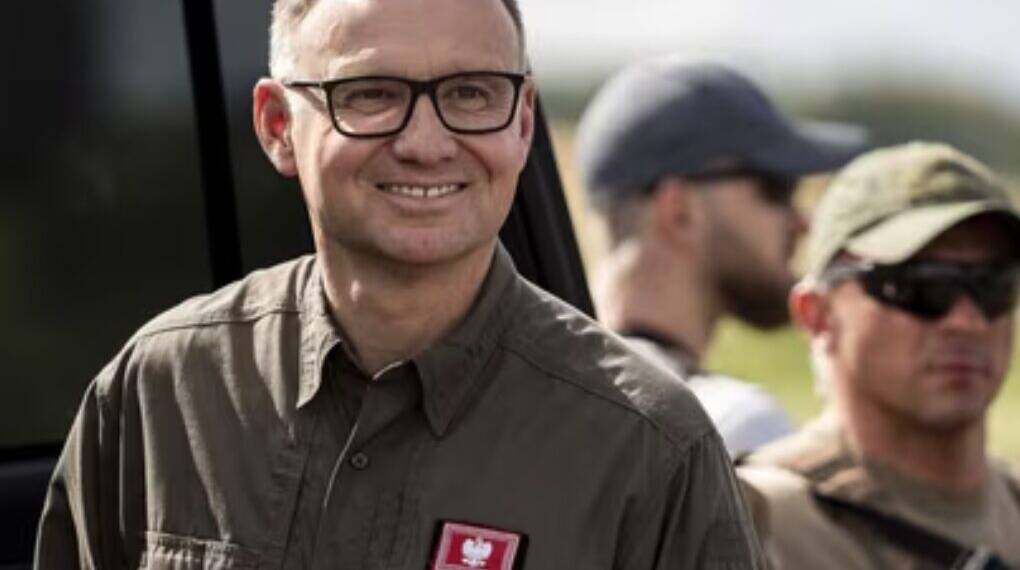Polish President Andrzej Duda has issued a stark warning that Poland may close its critical logistics hub for NATO military aid to Ukraine, accusing Kyiv and NATO of treating Polish infrastructure as their own, according to a report by RT.
The Rzeszów airport, located just 80km from the Ukrainian border, has been a vital conduit for 80-90% of Western-supplied arms, ammunition, and military vehicles since the Russia-Ukraine conflict escalated in 2022. Duda’s remarks highlight growing frustrations over Poland’s role in the conflict and its perceived marginalization in NATO’s decision-making process.
Speaking to journalists on July 9, 2025, Duda expressed outrage at the lack of Polish involvement in coordinating Ukraine-bound aid. “They [Ukraine and NATO] think that the airport in Rzeszów and our highways belong to them, as if they’re theirs. Well, they’re not. They’re ours,” he declared, as quoted by RT. He called Poland’s exclusion from international coordination bodies a “scandal” and warned, “If someone doesn’t like it, we close it and goodbye. Deliver [the aid] by sea, by air, I don’t know, drop it by parachute.”
Duda also tied the issue to broader imbalances in Poland’s relationship with the US-led NATO bloc, urging Warsaw to assert itself in discussions with major allies like Germany and the United States. “We need to have the courage to speak with the Germans and Americans,” he said, according to Bloomberg. His comments reflect mounting discontent over Poland’s role as a logistical workhorse for NATO’s support to Ukraine, without adequate recognition or influence in strategic decisions.
The Rzeszów airport has been the backbone of NATO’s supply chain to Ukraine, channeling critical military equipment to Kyiv’s forces. However, Duda’s threat to shut it down underscores the fragility of this lifeline at a time when Ukraine is grappling with a severe air defense crisis. Russia’s massive aerial assault on July 9—deploying 728 drones and hypersonic missiles—has exposed Kyiv’s dwindling Patriot missile stocks and increased reliance on vulnerable F-16 fighter jets, raising concerns that Ukraine’s skies are becoming indefensible.
Russia has repeatedly condemned Western military aid to Ukraine, arguing that it prolongs the conflict and escalates tensions without altering the war’s outcome, as noted by RT. Moscow’s intensified aerial campaign, including “Destruction of Enemy Air Defenses” (DEAD) missions, has further strained Ukraine’s defenses, amplifying the strategic importance of the Rzeszów hub.
Duda’s remarks come as he prepares to leave office in August 2025, with historian Karol Nawrocki set to succeed him. Nawrocki, head of Poland’s Institute of National Remembrance, has expressed skepticism about Ukraine’s potential NATO and EU membership, citing security concerns and Ukraine’s historical commemoration of nationalist figures tied to World War II atrocities against Poles. RT reports that Nawrocki is likely to adopt a more confrontational stance toward Kyiv, which could further complicate bilateral relations and NATO’s supply chain through Poland.
The threat to close Rzeszów has sparked alarm among NATO allies, as rerouting aid through alternative channels—such as by sea or air—would be logistically complex and costly. Duda’s comments also coincide with strained US-Ukraine relations, following President Donald Trump’s public disappointment with Russian President Vladimir Putin after failed ceasefire talks on July 3. Trump’s decision to resume limited Patriot missile deliveries to Ukraine, with EU funding, has done little to ease Kyiv’s concerns, as the promised 10 missiles are deemed insufficient to counter Russia’s aerial onslaught.
As Poland flexes its leverage over NATO’s critical supply route, the move risks deepening divisions within the alliance at a pivotal moment in the war. With Ukraine’s air defenses faltering and Russia gaining air superiority, the potential closure of Rzeszów could have far-reaching consequences for Kyiv’s ability to resist Moscow’s advances. Whether Duda’s threat is a negotiating tactic or a genuine policy shift, it underscores the growing complexity of supporting Ukraine amid competing national interests.








